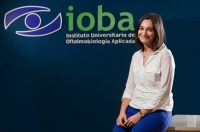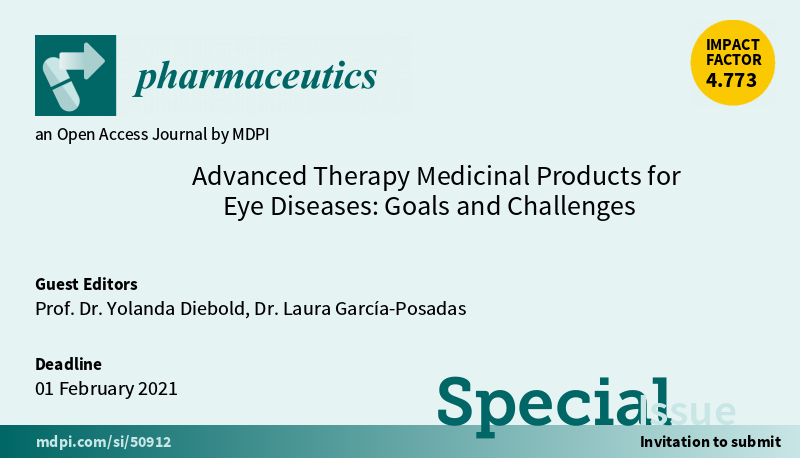Laura García-Posadas, Ph.D.
 Profile
Profile
Dr. Laura García-Posadas earned her Bachelor’s degree in Biotechnology from the University of Salamanca in 2009 and her Ph.D. in Vision Sciences from the University of Valladolid in 2015. She specializes in the development of new advanced models to study ocular surface inflammation. After completing her PhD training in Spain, she moved to a pharmaceutical company in United Kingdom (KalVista Pharmaceuticals Ltd.) to do an internship as a Marie S. Curie Experience Fellow. Afterwards, she joined Darlene A. Dartt’s laboratory at the Schepens Eye Research Institute/Massachusetts Eye and Ear Infirmary, and Harvard Medical School, in Boston, USA, as a postdoctoral research fellow. In 2018 she returned to the Institute of Applied Opthalmobiology (IOBA) at the University of Valladolid where she is currently conducting her research.
Her research focuses on cell biology and tissue engineering. Laura’s main achievements have been the optimization of different primary cell cultures and the development of a bioengineered three-dimensional model of human conjunctiva. Other research areas she has been involved in include ocular inflammation, biomarkers, nanotechnology, and cell signaling.
Laura has published 15 papers in indexed, peer-review journals, including an invited review about conjunctival goblet cells in Eye & Contact Lens. In addition, her research has been continuously presented in national and international conferences. Currently, she is co-PI in a national Grant entitled “Delivery of artificial exosomes to treat blinding eye diseases (ARTEX4EYE)”.
Dr. García-Posadas has additional training in Business Administration and Project Management (MBA, specialization in Project Management, INESEM Business School), in Translational Research (Fundamental of Clinical and Translational Research, Harvard Catalyst) and in Psychology (Bachelor’s Degree, UNED). She has also been actively involved in teaching, being a lecturer for undergraduate and graduate students.
Interests
Dr. García-Posadas main interest is the study of the pathological mechanisms involved in ocular surface diseases, as a necessary step to find targets for new treatments. She is also interested in the development of advanced in vitro models that might help to reduce the use of living animals in research.
Selected Awards
2016: Outstanding PhD Award from the University of Valladolid
2016: Young Investigator Awards from the Tear Film & Ocular Surface Society (TFOS)
2017: Student Award from the International Society for Contact Lens Research (ISCLR)



